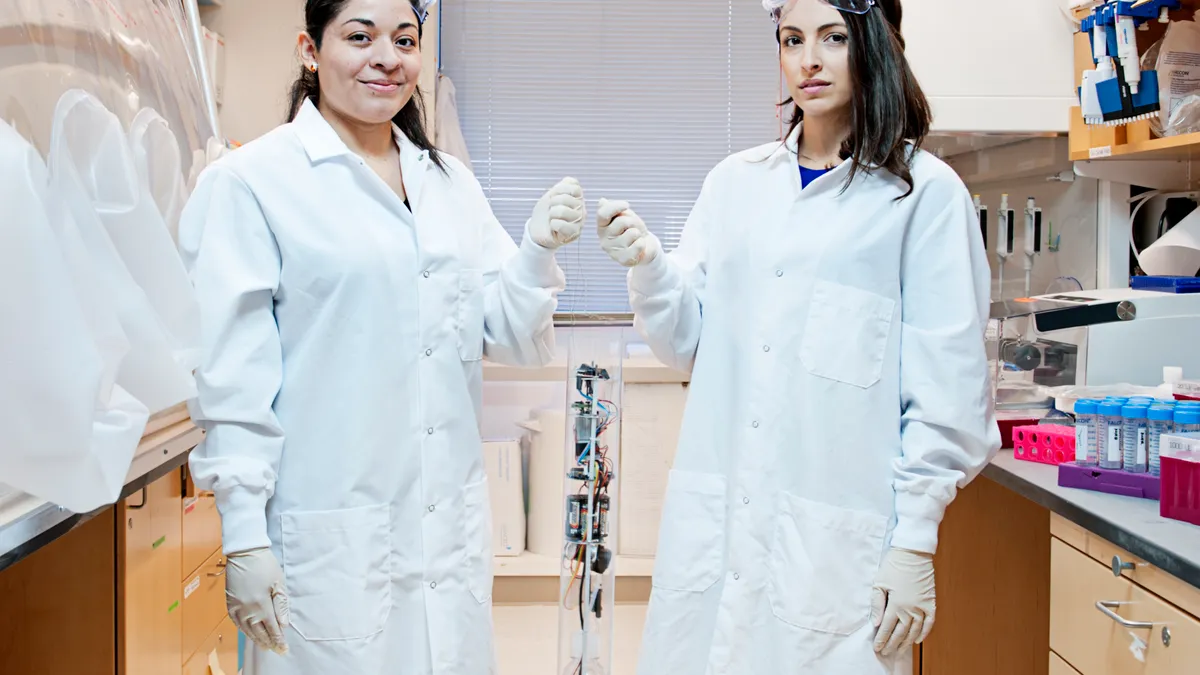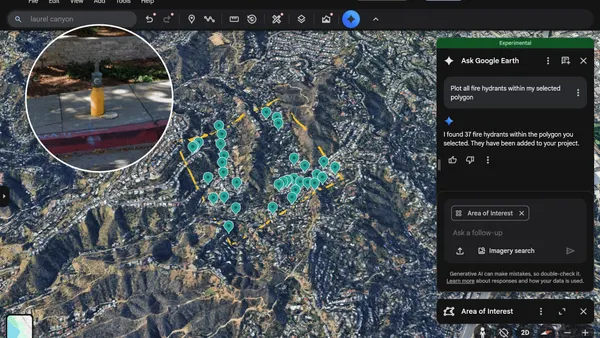The onset of the coronavirus crisis marked a turning point for the world of epidemiology, as doctors around the globe raced to develop a vaccine that could halt the spread of SARS-CoV-2. It also marked a turning point for the obscure practice of wastewater epidemiology — how researchers glean viral transmission information from human excrement.
Wastewater epidemiology company Biobot Analytics has illustrated the value of this science by working with more than 400 cities this year to better understand the prevalence of COVID-19 in their communities. Through the collection of sewage samples, Biobot is analyzing viral strains excreted in urine and stool and mapping that data to illustrate a community's hyperlocal presence of COVID-19.
Founded by biologist Mariana Matus and urban studies researcher Newsha Ghaeli through an MIT research project in 2017, the company was built with a mission of leveraging data from wastewater to make community health more equitable and proactive.
"[We] launched this research initiative rethinking whether we can look at our sewer systems as being our 'community gut'," Ghaeli said. This approach can bring public health departments a new metric by which they assess community health issues, she said, allowing real-time insights that can lead to proactive policymaking.
Sniffing out cities
The opioid epidemic ravaging the U.S. was the focus of Biobot's work until the onset of COVID-19. Biobot was the first wastewater epidemiology team in the U.S. to "successfully detect the virus and publish our work," Ghaeli said, and by March 25 launched a pro-bono campaign soliciting wastewater samples from cities nationwide.
"We felt that this data was potentially so valuable that we wanted to get as many communities accessing the information as possible so that we could also learn from them" on how to make the testing better, Ghaeli said. The company sought to work with 100 communities, but within 10 days had hundreds of local governments on a waitlist.
One of those community partners was New Castle County, DE, home to a population of 565,000 with 2,000 county employees. The county set up a saliva-based testing system in May that reached thousands of residents, said county executive Matt Meyer, yet that system encountered biases as lower-income residents and non-English speaking communities got tested at lower rates.
"For me as a policymaker, I'm trying to make decisions about where the virus is and whether it's growing or shrinking or what's going on in our community. And it's hard to do that with such imperfect information in the first place," Meyer said. He was "looking high and low for great strategies" to further protect residents from the virus when he came across an article about wastewater epidemiology, prompting contact with Biobot.
"What we like to say here in our sewer department is, poop is the great equalizer," said Meyer, noting that data collected from sewage does not have the biases seen in other approaches. "It's a large enough pool of people so that we get a much better measure than any measure I've seen of where the virus is, and whether it's increasing or decreasing."
"What we like to say here in our sewer department is, poop is the great equalizer."

Matt Meyer
County Executive, New Castle County, DE
Ghaeli said her team of 15-odd researchers worked long days and nights to service the 400-plus cities free of charge before Biobot, which now employs 25 people, launched its wastewater testing as an actual service on June 1. The cost of sampling now varies by population size and the needs of each customer, she said, with a typical community spending about $4,000 per month for the service.
As the company's reach grows, its objective is grabbing the attention of the federal government. The U.S. Department of Health and Human Services (HHS) is seeking contract bids for an "early warning system" to test the country's wastewater for coronavirus outbreaks, which "appears designed for one company, in particular: Biobot Analytics," CNBC reports. Ghaeli did not share if Biobot will respond to this bid, but said her team is "keen to see what happens there."
Biobot is hopeful a renewed interest in public health beyond COVID-19 will lead to wastewater testing becoming part of permanent infrastructure. The women-led team is also hopeful that it can inspire younger generations to pursue science and tech fields to bring new public health solutions to the table.
"If one great thing comes from us doing this, it's that we can hopefully be role models for younger women and girls who are interested in pursuing careers in STEM, or starting their own companies," Ghaeli said. "Frankly, we need more female founders and entrepreneurs."




 Read more
Read more





